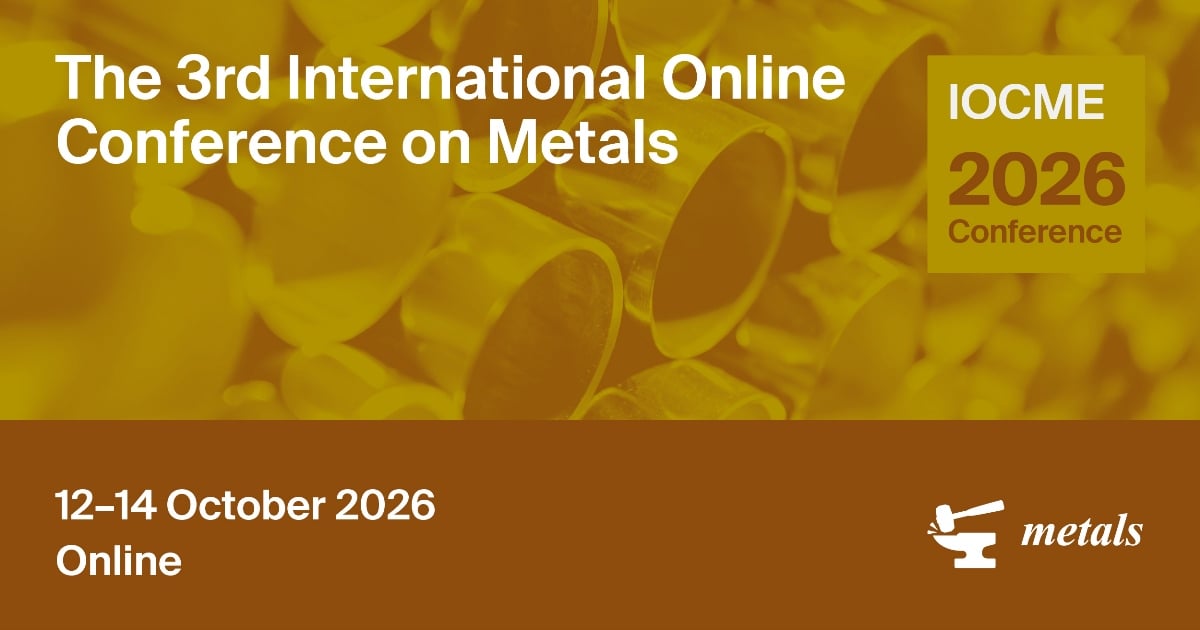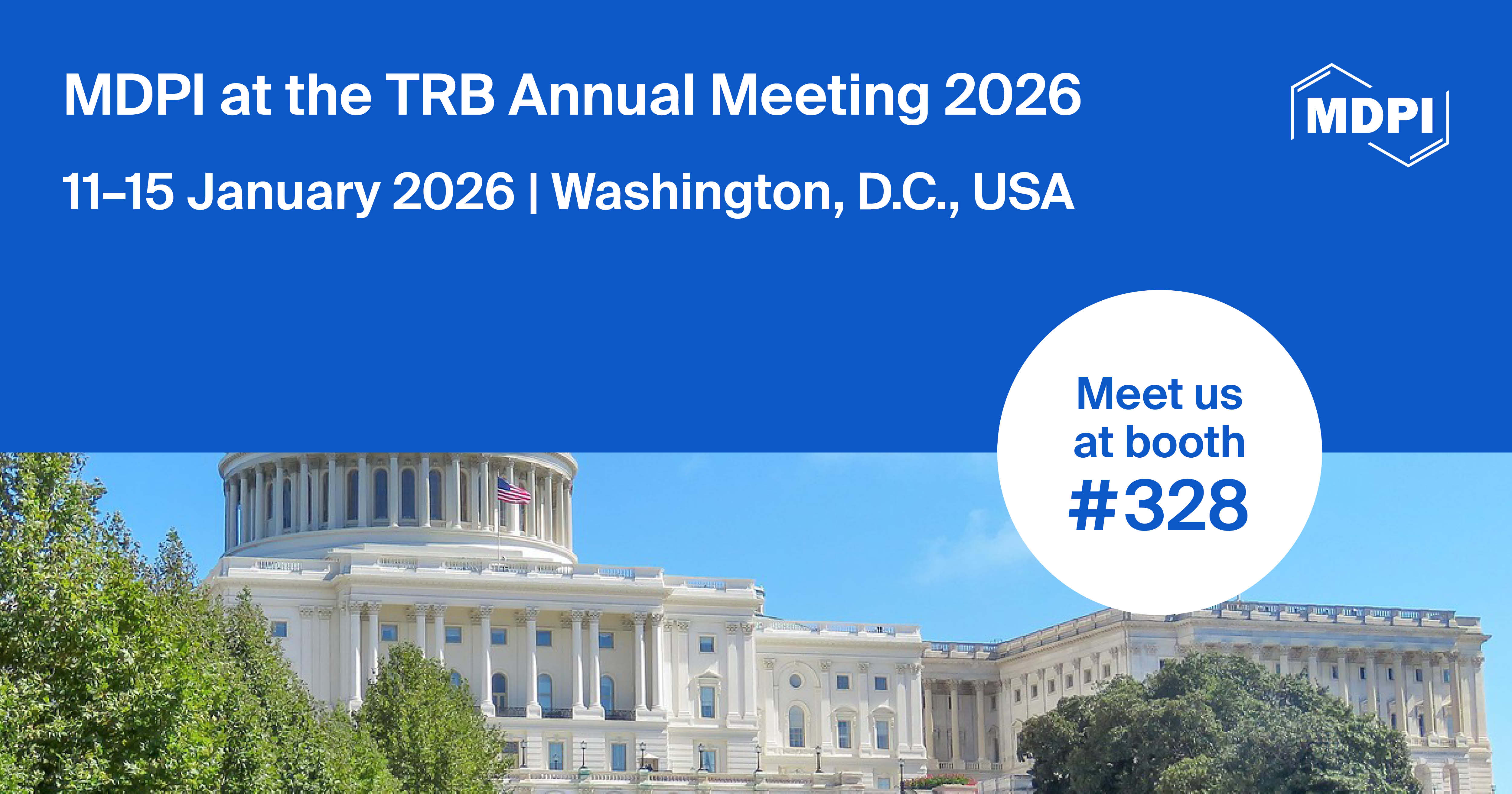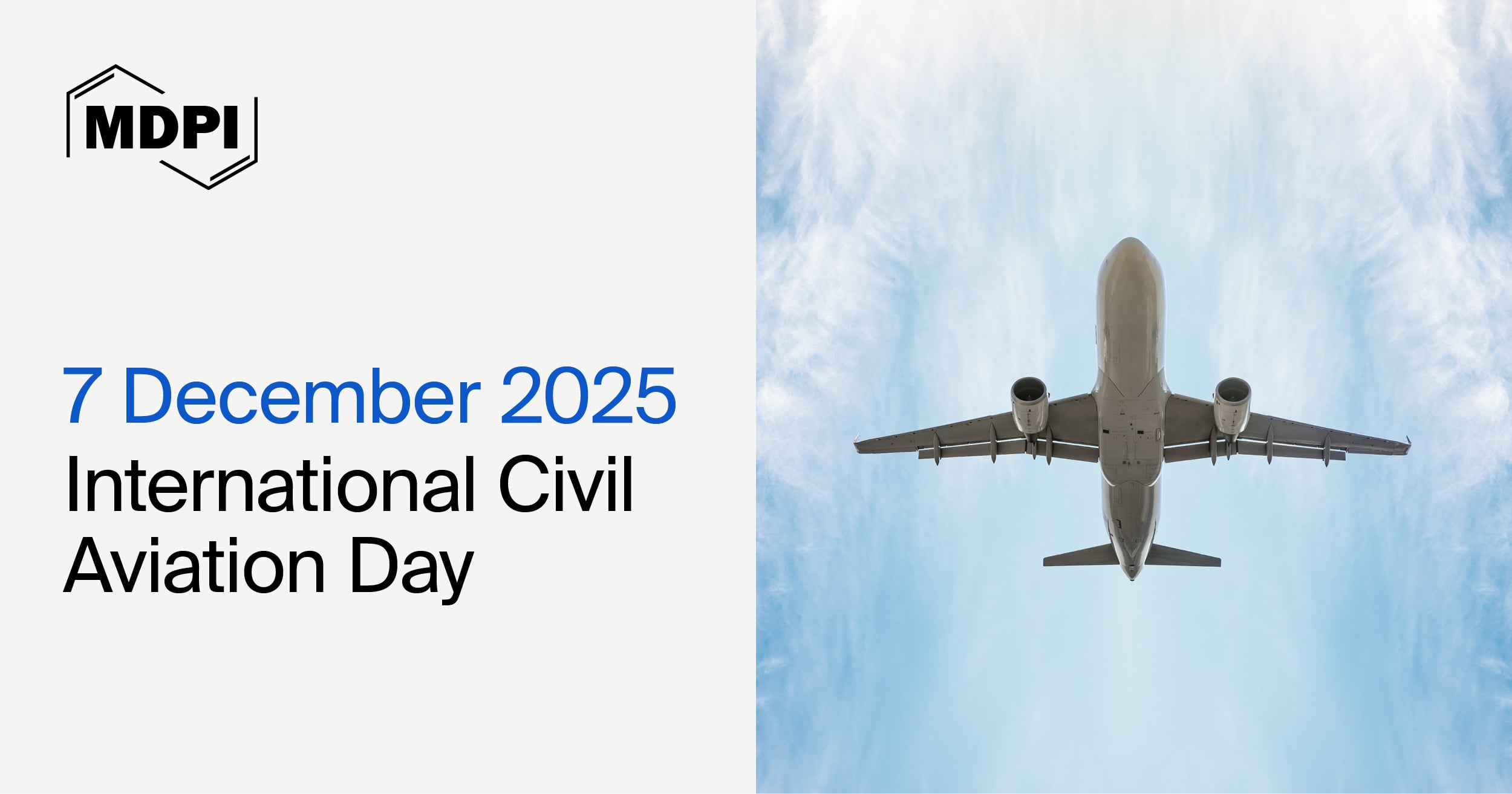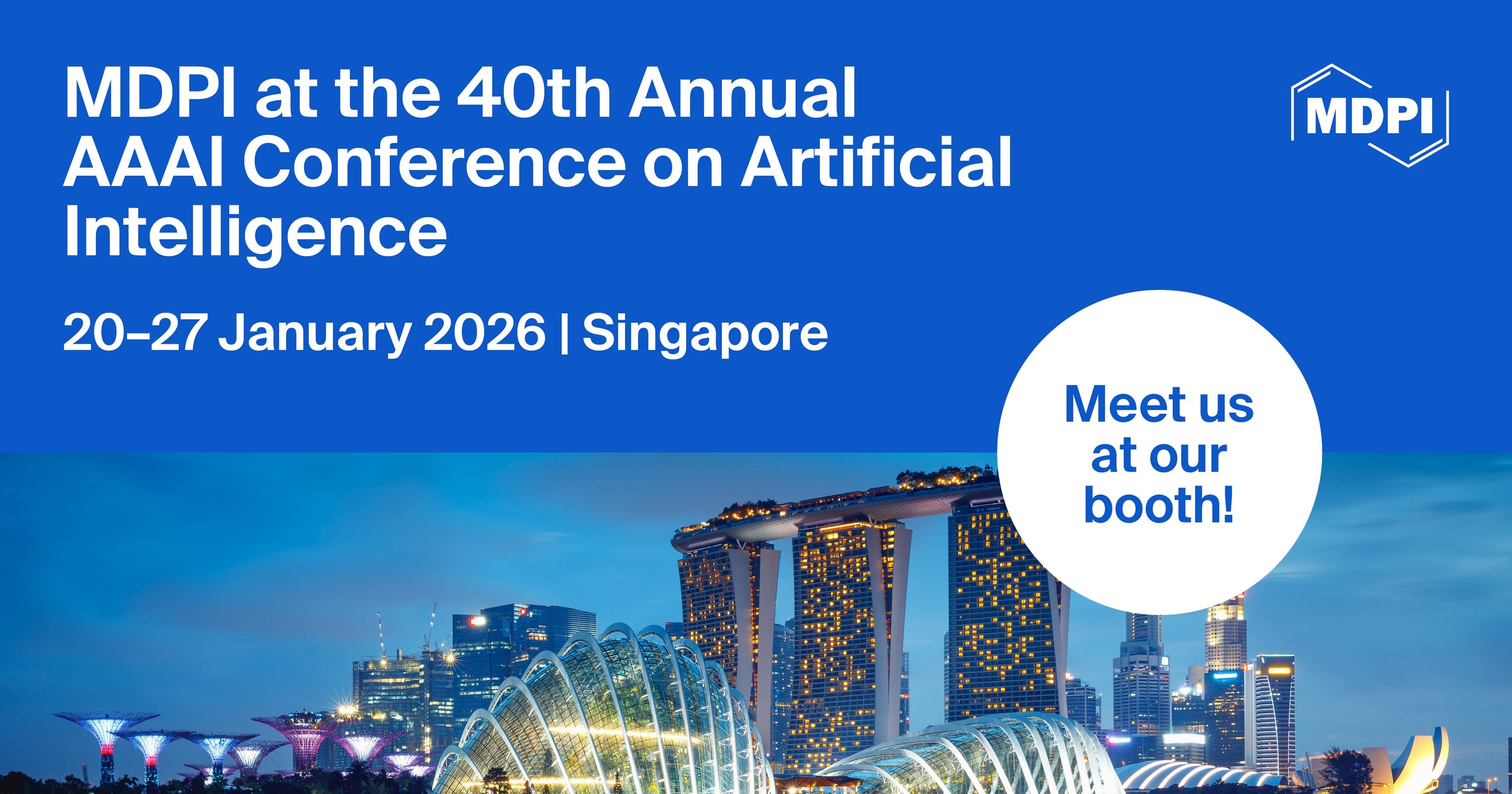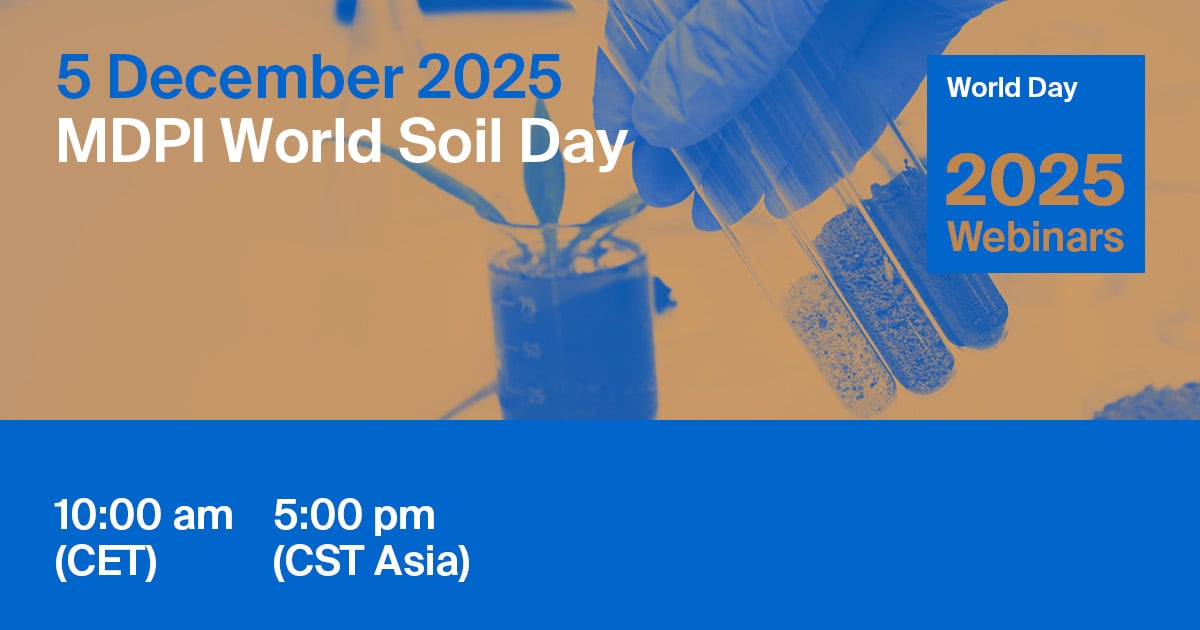- 2.5Impact Factor
- 5.5CiteScore
- 17 daysTime to First Decision
News & Conferences
Latest News & Announcements
Latest Conferences
Propose a Conference Collaboration
Promote and publicise your upcoming conference with MDPI.
All News & Conferences
News & Announcements
MDPI’s Newly Launched Journals in December 2025
9 January 2026
News & Announcements
Meet Us at the EGU General Assembly 2026, 3–8 May 2026, Vienna, Austria
6 January 2026
MDPI Conference
The 3rd International Online Conference on Metals
12 - 14 October 2026
News & Announcements
Meet Us at the Transportation Research Board (TRB) Annual Meeting 2026, 11–15 January 2026, Washington, D.C., USA
17 December 2025
News & Announcements
Article Layout and Template Revised for Future Volumes
11 December 2025
MDPI Conference
Applied Sciences Webinar | High-Precision Fabrication via Laser-Based Additive Manufacturing, 16 December 2025
16 - 16 December 2025
News & Announcements
Applied Sciences Webinar | High-Precision Fabrication via Laser-Based Additive Manufacturing, 16 December 2025
9 December 2025
News & Announcements
World Soil Day—“Healthy Soils for Healthy Cities”, 5 December 2025
5 December 2025
News & Announcements
International Civil Aviation Day, 7 December 2025
5 December 2025
News & Announcements
Meet Us at the 40th Annual AAAI Conference on Artificial Intelligence, 20–27 January 2026, Singapore
4 December 2025
5 - 5 December 2025
of 51





